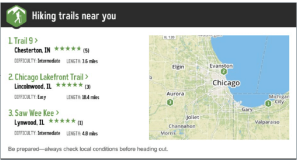My blog, Camping With Style, has recently celebrated it’s 1st anniversary and reached the 10,000 unique visitors mark. Whilst I’ve been blogging for business clients for many years, this is my first foray into writing for myself and running a non-commercial blog.
In this past year I’ve learned a lot, and would like to share some of the insights I’ve gained with you.

1. Don’t do it if it’s not a true passion
Blogging takes up every ‘spare’ minute I have. Even when I’m not tapping away at the keyboard, I’m thinking about my next article or how to further promote my old articles. If your blog isn’t a true passion, you’ll quickly run out of ideas and enthusiasm.
2. Don’t punch above your weight
Blogging is a competitive business these days. Don’t start approaching brands right off that bat, wait until you have something compelling to offer them. This makes you come across as more credible, which makes you look professional and like someone worth working with.
3. Don’t expect loads of freebies
If your blog is new (i.e. less than a year old) don’t expect brands to rush to work with you. Even if your blog is well established, brands still won’t necessarily be throwing freebies at you, so don’t start a blog with the sole objective of ‘getting free stuff’.
Always offer brands something in return for samples sent your way, in order to build a reputation as someone who is good to work with. Never just assume you’ll get to keep something afterwards either. High value items in particular are often loaned out as a press sample and should be returned. Integrity is incredibly important.
4. Don’t overstretch yourself
When a blog takes off, it can really take off, and after months of hard slog, in the excitement of your new found success, it can be tempting to say yes to every new opportunity that passes your way. Keep on saying yes however, and you’ll either burn out or find that you are over-promising and can’t deliver.
Schedule your commitments and don’t take on too much at the same time. I put about 20-25 hours of work into my blog most weeks, and that’s on top of my 40 hour a week full time job, which leads on to the next point.
5. Don’t expect an easy ride
Even when i’m not working, or writing for the blog, i’m still thinking of the blog and generating ideas on what to do next. When you are blogging about a passion or interest that is already a big part of your life, it makes things that little bit easier.
The downside however is that you may find it difficult to make any real time for yourself, and downtime is important as it helps to supercharge your creativity. I have previously been self employed, and have been able to draw on the time management skills I learned running my own business, which has been a huge benefit in running my blog whilst managing all of my other commitments.
6. Don’t expect to quit your job yet
It’s difficult to judge when a blog has made it as this can be quite subjective, though somewhere around the 10,000 unique visitors mark is definitely a good indicator that a blog is taking off.
Even with a high traffic, fully monetised blog, you won’t necessarily earn enough to make quitting your job a reality. The internet is full of reports of successful bloggers who quit their jobs and now blog their way around the world, but these success stories, whilst compelling, really are in the minority.
Be realistic. It takes a LOT of hard slog, so don’t make any rash decisions and don’t even think about leaving full time employment until your blog is generating a comparable income.
7. Don’t stop learning
A successful blog takes a broad range of skills. First you’ll need to be a decent writer, you’ll need to understand content marketing, SEO, time management, negotiation, social media and PR. I find that my background in web design and internet marketing, along with my love of photography, is invaluable.
To make your blog work you’ll need to wear a lot of different hats, and you’ll need to be willing to constantly learn new skills. If nothing else, keeping on top of SEO is an absolute must.
8. Don’t underestimate the time and dedication needed
A typical blog post takes me 3 hours to write. My more detailed blog articles can easily take 4-5 hours. That might seem like a lot, but pumping out low quality content won’t do you any favours in the long run.
I always write a draft article, then I source and resize photographs or design a fitting image in Photoshop. Then I upload and format it all. Then I edit it. Then I go over the whole article with my SEO hat on. Then I publish the article, and do a final read through and deal with any corrections I missed before then going on to promote the article across all of my social channels – your work really isn’t over once you hit the publish button.
9. Don’t let the quality of your content slide
You should never feel like you have to get a blog article written. Rushed, sloppy content won’t do you any good and reflects badly on you, making you look unprofessional. I would much rather write fewer articles than pump out several weak ones each week, just for the sake of it. Quality over quantity should be your mantra.
10. Don’t take it personally
You’ll need to learn to deal with rejection and even downright hostility. From snarky blog comments, to not hearing back from brands you pitch. Don’t make the mistake of taking it personally. Brands are busy, and often speculative pitches won’t even reach the correct member of the PR team. When it comes to blog and social media comments, learn to spot constructive criticism and act on it, but equally you’ll need to learn to ignore the trolls out there.
No one is perfect, and i’ve come under fire before for typos. I got incredibly upset about it initially, but then decided to cut myself some slack. I don’t have the luxury of an editor to double check my content and i’m not a trained journalist. I’ve never claimed to be faultless and i’m fine with that. If a reader can’t forgive the odd typo and doesn’t want to read my blog as a result, then really, it’s not the end of the world.
Deal with hostility, snarkiness and trolls in a professional, detached manner and remember you always have the power to block or delete their comments.
(227)
Report Post







